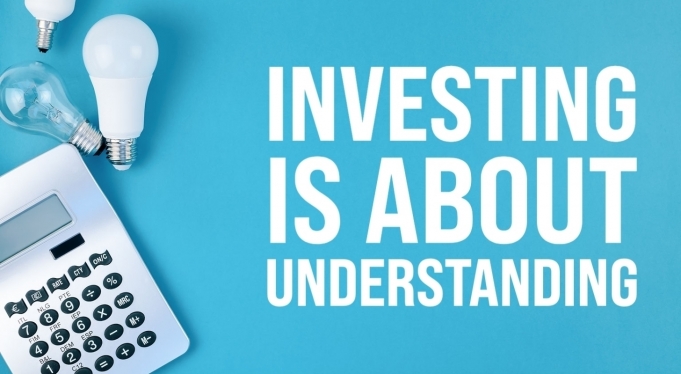In order to be a successful investor, one needs to have a good understanding of a few things. While some of are factors related to fundamental analysis and understanding how the markets work, believe it or not, investing likely has more to do with knowing your personal wants and needs more than anything else. Contrary to what many may think, you do not need to be a math wiz or have predictive powers to be a successful investor. Certainly, these skills can give someone an edge, but overall we believe, the average beginner investor only needs to master a few basic concepts as a starting point to realizing excellent long-term returns building wealth.
In this post, we discuss some key lessons from our Investing 101 guide, which you can download here.
So what do you need to understand well before starting on your investment journey?
Understanding risk
It is important to understand how much you are able to invest. Put differently, how much can you afford to risk and potentially lose in the markets? A general concept in investing is that one takes on higher risks for higher rewards. However, it is important to understand that higher risks will not necessarily always translate into higher rewards and one has be able to identify risk-to-reward scenarios that makes sense for his/her own investment portfolio.
Another element to understanding risk relates to the personal finance side of things. A rudimentary part investing is knowing how much disposable income you have and how much of your savings are not needed in the short term (approx. 1-2 years). Investing one’s entire life savings in the markets while on a tight monthly budget, is likely a bad idea and risky thing to do.
A counterpoint to not taking on too much risk is considering whether one is taking enough risk to realize his/her goals. For example, if one holds too little in risk asskets like equities and too much in safer assets like bonds, the opportunity cost is potentially huge for someone investing over a long period of time. That is a risk in and of itself!
Understanding time
Arguably the most common mistake investors make (aside from not taking the appropriate amount of risk) is not factoring in their time horizon when making an investment decision. A general rule of thumb to follow is that higher risk investments require a longer time horizon to realize their return potential and in the short-to-medium term, it may be a bumpy ride.
This is important to understand as many investors sell out of an investment too early because they are not seeing the results they expect in the short term. Stocks fluctuate for various reasons on a day-to-day or even month-to-month basis that have little to do with a company’s underlying business performance or fundamentals. Often times it requires patience for the fundamentals to reflect in a company’s stock price.
Understanding your time horizon is also essential as it largely determines how much risk one can take and what kind of assets are most relevant to own. Finally, your time horizon is ultimately a reflection of your goals and when you want to achieve them. Remembering this helps one avoid straying from their investment strategy.
Understanding assets
It is important to know what the main investing assets are and their differences (i.e. stocks, bonds, real estate investment trusts (REITs), exchange-traded funds (ETFs), gold, commodities etc). Each asset class ‘behaves’ in its own way. Having a mix of these assets provides investors with diversification benefits and helps impk. The mix and weighting of each asset class is also connected to how much risk you can take and the time horizon you set for your goals.
For example, it is important to understand that equity ETFs (exchange-traded fund) represent a basket of stocks and is very different than owning an individual stock since the former gives you a lot more diversification than the latter.
Understanding accounts
Know the different account types and which to use is also important especially with regards to saving on taxes. Taxes saved annually can have a large compounding effect over time on your investment returns. A general rule of thumb is to maximize contribution room for tax-sheltered accounts first then use a non-registered (taxable) account. That said, non-registered accounts do have their own advantages despite being taxable.
Understanding yourself
This final point may sound a bit cliché, but it is likely the most important factor that ties everything together. For example, while you may be able to take on more risk given your life stage and time horizon, you may not be willing to see your portfolio drop by 30% in any given year and so ultimately this will determine how much you invest in equities versus bonds or even hold in cash.
Understanding what you truly want and what your goals are in life are highly correlated to what your investment strategy might be. Are you investing in the markets for an early retirement? To buy a yacht in three years? Are these goals realistic within your time horizon? Are they what you prioritize? These are all important questions to ask yourself.
Your morals may also determine what kind of companies you choose to invest in or not. Your worldviews will also likely determine what industry trends you think are important to be invested in.
To summarize things in two points, it would be this:
1) Invest in things that make sense to you
2) Don’t risk more money than you can afford to lose.
It is often said that investing is 20% knowledge of markets and finances and 80% self-control. Finally, it is important to understand that there is no silver bullet to investing (especially when investing in individual stocks) and it is about constant learning. As with many things in life, it’s all about finding a balance that works for you.
Knowledge pays the best dividends








Comments
Login to post a comment.